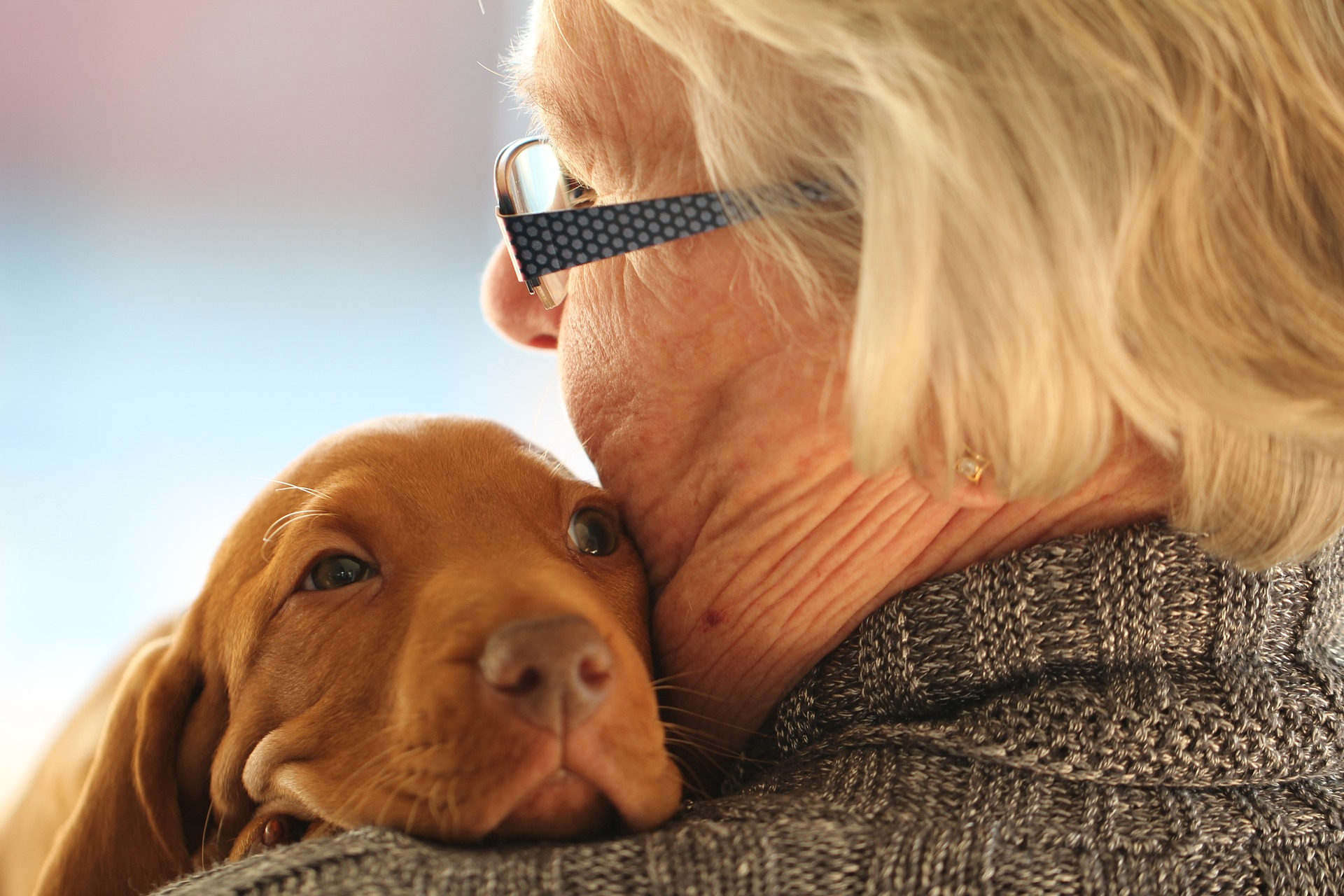Numerous studies show there are physical, emotional, and mental benefits of dog ownership for people of all ages. From encouraging daily exercise to quiet companionship, it’s no surprise to dog lovers that pooches bring loads of benefits with their wagging tails.
Of course, like any relationship, it requires the right match for happiness. You wouldn’t gift a high energy puppy to a housebound relative and expect that to go well. On the other hand, a mellow senior dog might be just the right companion.
With benefits ranging from increased exercise to a greater purpose in life, a companion pet can be perfect for many senior citizens.
Physical Activity is Healthy for Everyone
“Among adults 60 years of age or more, walking is the most common form of leisure-time physical activity because it is self-paced, low impact and does not require equipment. Researchers at the University of Missouri have determined that older adults who also are pet owners benefit from the bonds they form with their canine companions. Dog walking is associated with lower body mass index, fewer doctor visits, more frequent exercise and an increase in social benefits for seniors.” (Source)
Dogs Reduce Loneliness
Simply petting an animal can reduce stress and increase feelings of companionship because it releases the “feel good” chemicals of dopamine. Walking a dog gives you an opportunity to talk to people on the street or at the dog park. Plus, everyone knows a pet gives you someone to talk to anytime you feel like it.

"'Older pet owners have often told us how incredibly barren and lonely their lives were without their pet's companionship, even when there were some downsides to owning an active pet,' says Linda Anderson, who founded the Angel Animals Network in Minneapolis with her husband Allen." (Source)
Provides Purpose
For some seniors -- especially those who live alone and don’t have an active social life -- having a pet gives them a sense of purpose and a routine.
“There are many adults who find that once they are retired, and have grown kids, they feel a bit empty without a career or someone to care for. This can make it difficult for seniors to find a real sense of purpose in their lives. However, pets need their owners. They depend on their owners for companionship, love, food and exercise. A pet can give an elderly adult a real sense of purpose and help them create a routine that brings structure to their day.” (Source)
What Type of Pet is Best?
If you’re considering adopting a dog for yourself or a loved one, it’s essential to consider the lifestyle and environment.
For example, if your elderly mother expresses interest in a dog, but she’s not strong, then consider a small dog like a Maltese or Shih Tzu. These are not dogs who will drag anyone down the street and can even be trained to use indoor potty pads if necessary.

Or, if your loved one isn’t able to care for a dog on their own, maybe they can enjoy visits from a therapy dog.
Pet Therapy is On the Rise
"Animal assisted therapy (AAT) is the use of certified therapy animals as a part of a therapeutic plan." (Source) Therapy dogs are specially trained canines who must undergo rigorous training with their handler and pass a test that certifies them as therapy dogs.
Increasingly, these dogs are invited into nursing homes, retirement centers, and hospitals because they bring joy and healing to those around them.
What about you? Chances are, you’re a dog lover and already clued into dogs as man’s (or woman’s) best friend. Have you seen how they can benefit senior citizens?

